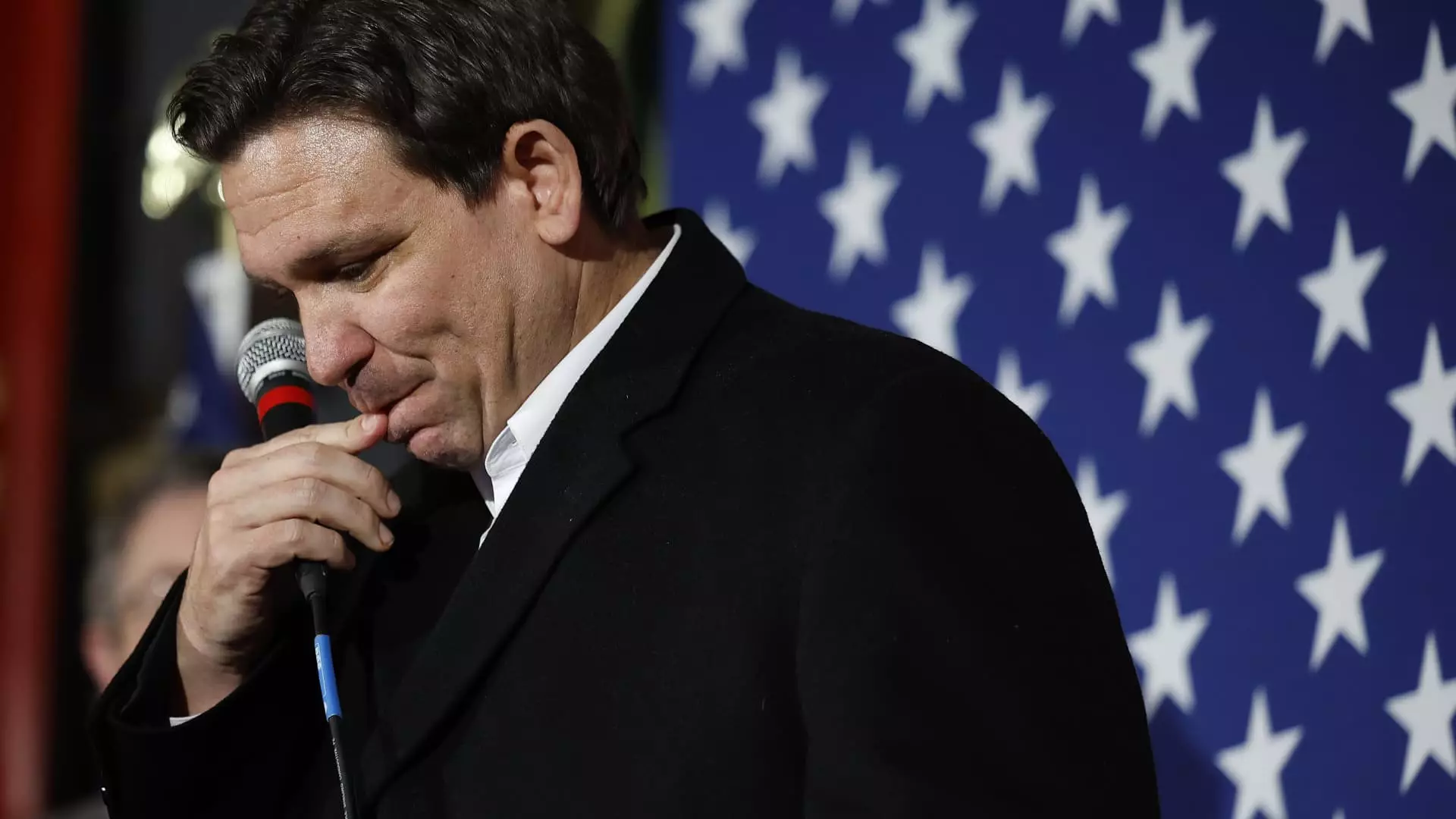Florida Governor Ron DeSantis made headlines when he officially dropped out of the 2024 presidential race and endorsed frontrunner Donald Trump. This surprising move occurred just two days before the New Hampshire primary. In a social media post, DeSantis expressed his reasons for suspending his campaign, citing a lack of clear path to victory. While this decision may have come as a shock to some, it highlights certain flaws and challenges faced by DeSantis throughout his campaign.
An Unwavering Endorsement for Trump
DeSantis’ endorsement of Donald Trump was a significant blow to his fellow Republican candidates, as Trump’s popularity and influence within the party remain undisputed. DeSantis emphasized his belief that Trump is superior to the current incumbent, Joe Biden, and expressed his commitment to honoring the pledge he had signed to support the Republican nominee. This endorsement not only solidified DeSantis’ allegiance to Trump but also showcased his dissatisfaction with other contenders, particularly singling out Nikki Haley as a representative of the “old Republican Guard of yesteryear.”
DeSantis joins a growing list of former 2024 candidates who have dropped out of the race and subsequently endorsed Donald Trump. This includes figures like North Dakota Governor Doug Burgum and Senator Tim Scott from South Carolina. The Trump campaign responded with gratitude for DeSantis’ endorsement and acknowledged the support from multiple former candidates. While this trend may indicate the enduring appeal and power of Donald Trump within the Republican Party, it also raises questions about the lack of diversity and competition within the race.
DeSantis’ decision to withdraw from the 2024 race is a culmination of various setbacks endured by his campaign. Despite claiming victory at the Iowa caucuses, where he narrowly edged out Nikki Haley for second place, DeSantis struggled to gain traction in New Hampshire. According to a CNN/University of New Hampshire poll conducted in mid-January, DeSantis was polling at a mere 6%, significantly behind Trump’s commanding 50% and Haley’s 39%. This lack of popularity and support from voters ultimately played a crucial role in his decision to suspend his campaign.
Internal Challenges and Strategic Missteps
The campaign of Ron DeSantis was not without its fair share of internal drama and strategic blunders. Reports of infighting plagued the campaign from early on, and several key staff members were quoted expressing doubts and losing faith in the campaign. Such internal conflicts not only undermine the perception of stability and unity but also hinder effective campaigning. Moreover, the decision to lay off staff from the pro-DeSantis super PAC, Never Back Down, and the cancellation of media appearances suggest a campaign that was rapidly losing steam.
Critics and concerned constituents have pointed out that Governor DeSantis should prioritize his responsibilities in Florida over his presidential ambitions. The decision to suspend his campaign and return to his day job as Florida governor may alleviate some of these concerns. However, this criticism raises important questions about the dedication and commitment of political figures when they choose to pursue higher office. The residents of Florida have questioned whether their governor’s attention has been diverted from the pressing issues faced by the state.
Ron DeSantis’ decision to drop out of the 2024 presidential race and endorse Donald Trump highlights the challenges and deficiencies of his campaign. Whether it was a lack of popularity among voters, internal conflicts within the campaign team, or concerns over neglecting responsibilities as Florida governor, these factors played a role in DeSantis’ withdrawal. As the political landscape evolves, it remains to be seen how this race will unfold and which candidates will emerge as the strongest contenders.

Leave a Reply